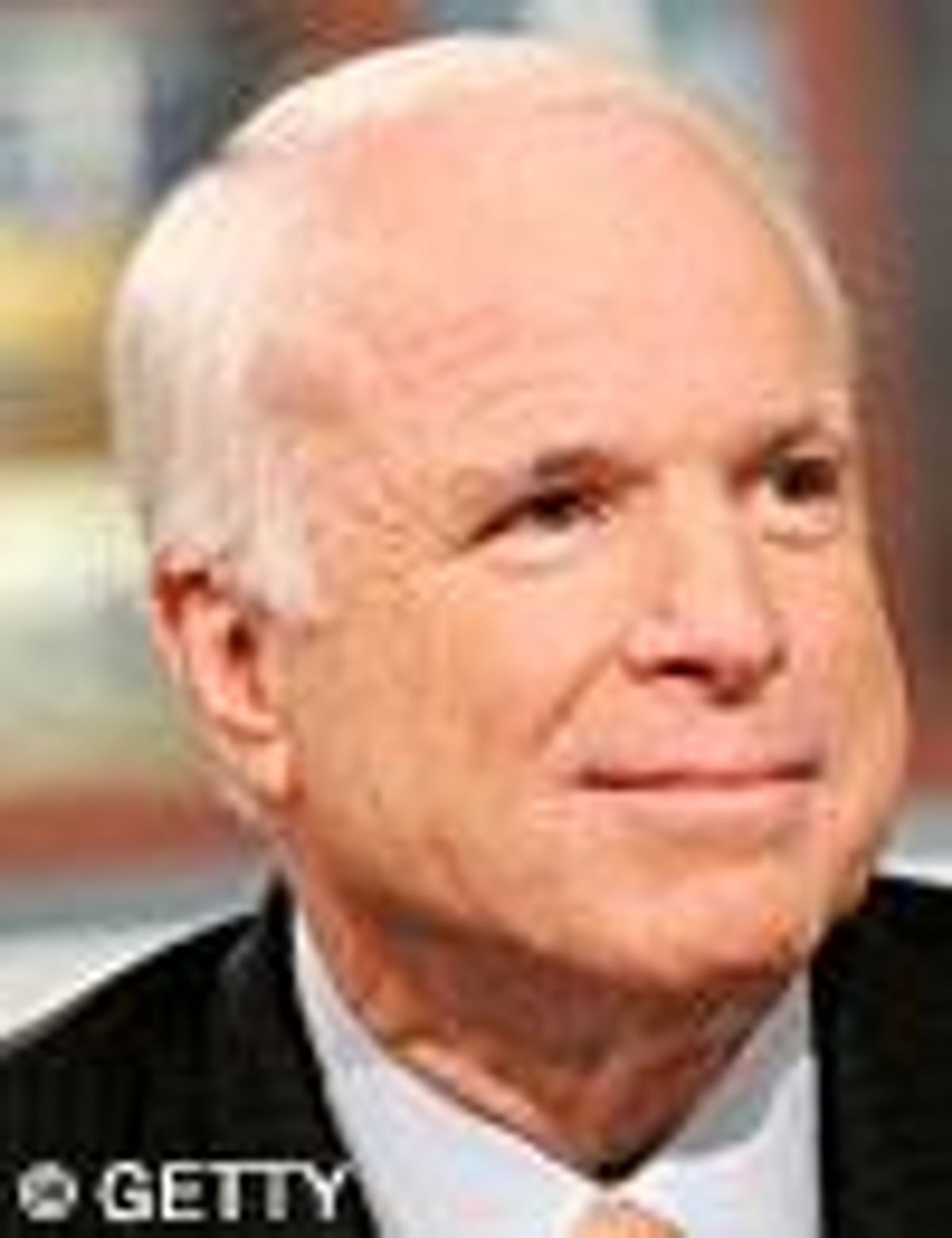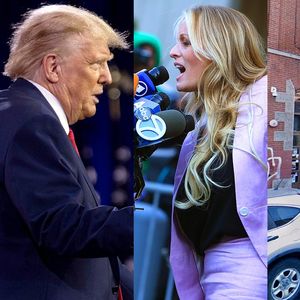John McCain
emphatically denied a romantic relationship with a female
telecommunications lobbyist on Thursday and said a report by
The New York Times suggesting favoritism for her
clients is ''not true.''
''I'm very
disappointed in the article. It's not true,'' the likely
Republican presidential nominee said as his wife, Cindy,
stood beside him during a news conference called to
address the matter.
''I've served
this nation honorably for more than half a century,'' said
McCain, a senator for 24 years and former Navy pilot. ''At
no time have I ever done anything that would betray
the public trust.
''I intend to
move on,'' he added.
McCain described
the woman in question, lobbyist Vicki Iseman, as a
friend.
The newspaper
quoted anonymous aides as saying they had urged McCain and
Iseman to stay away from each other prior to his failed
presidential campaign in 2000. In its own follow-up
story, The Washington Post quoted longtime aide
John Weaver, who split with McCain last year, as
saying he met with lobbyist Iseman and urged her to
steer clear of McCain.
Weaver told the
Times he arranged the meeting before the 2000
campaign after ''a discussion among the campaign
leadership'' about Iseman.
But McCain said
he was unaware of any such conversation and denied that
his aides ever tried to talk to him about his interactions
with Iseman.
''I never
discussed it with John Weaver. As far as I know, there was
no necessity for it,'' McCain said.
''I don't know
anything about it,'' he added. ''John Weaver is a friend
of mine. He remains a friend of mine. But I certainly didn't
know anything of that nature.''
His wife also
said she was disappointed with the newspaper.
''More
importantly, my children and I not only trust my husband,
but know that he would never do anything to not only
disappoint our family, but disappoint the people of
America. He's a man of great character,'' Cindy McCain
said.
The couple smiled
throughout the questioning at a Toledo,
Ohio, hotel.
The published
reports said McCain and Iseman each denied having a
romantic relationship. Neither story asserted that there was
a romantic relationship and offered no evidence that
there was, reporting only that aides worried about the
appearance of McCain having close ties to a lobbyist
with business before the Senate Commerce Committee, on which
McCain served.
The stories also
allege that McCain wrote letters and pushed legislation
involving television station ownership that would have
benefited Iseman's clients.
In late 1999
McCain twice wrote letters to the Federal Communications
Commission on behalf of Paxson Communications -- which had
paid Iseman as its lobbyist -- urging quick
consideration of a proposal to buy a television
station license in Pittsburgh. At the time Paxson's chief
executive, Lowell W. ''Bud'' Paxson, also was a major
contributor to McCain's 2000 presidential campaign.
McCain did not
urge the FCC commissioners to approve the proposal, but he
asked for speedy consideration of the deal, which was
pending from two years earlier. In an unusual
response, then-FCC chairman William Kennard
complained that McCain's request ''comes at a sensitive time
in the deliberative process'' and ''could have
procedural and substantive impacts on the commission's
deliberations and, thus, on the due process rights of
the parties.''
McCain wrote the
letters after he received more than $20,000 in
contributions from Paxson executives and lobbyists. Paxson
also lent McCain his company's jet at least four times
during 1999 for campaign travel.
''Riding on the
airplane was an accepted practice,'' McCain said
Thursday, adding that he supported a change in rules since
then. As for the letters, he said: ''I said I'm not
telling you how to make a decision; I'm just telling
you that you should move forward and make a decision
on this issue. I believe that was appropriate.''
Since the New
York Times story was published Wednesday
night, the McCain campaign has sought to discredit it,
distributing lengthy statements and deploying senior
advisers to appear on news shows. The campaign calls
the story a smear campaign to destroy the Republican
nominee-in-waiting. (Libby Quaid, AP)




















































































